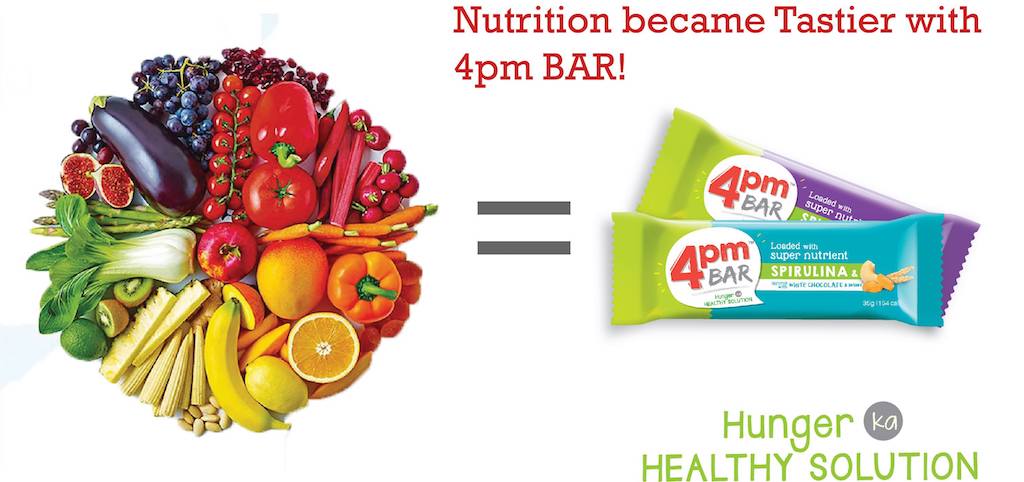After Algae Energy Bars, Naka Foods Develops Plant-Based Chicken To Change The Way Indians Consume Meat
4 Mins Read
Indian foodtech company Naka Foods, is known amongst health-conscious Indians for their 4pm spirulina snack bars. Today, the young startup is on a mission to address the limitations of the existing food system by providing sustainable and plant-based meat alternatives for the Indian and Asian consumers made from native crops.
Founded by Kushal Aradhya, the work to develop these solutions started back in 2015 with the support of a government-aided business incubator. By January 2016, the company was incorporated as Naka Foods and six months later, it developed its first product partnering with scientists from India’s Council of Scientific & Industrial Research (CFTRI). In the past two years, the company has joined a range of international food tech cohorts. In 2019, the startup participated in Brinc’s food technology accelerator program and is currently part of the ProVeg Incubator programme. Earlier this year, Naka Foods was also part of the Humane Society International – India’s Entrepreneurship Program.
Long before he started this company, Aradhya was involved in a project that focused on in-between-meals hunger pangs during which he came across data that showed that more than 70% of corporate employees in India are prone to heart and lifestyle diseases, and that the main reason for this astounding statistic are poor dietary habits. Naka Foods was born to tackle this problem.

“We are working towards replacing traditionally used food products with alternative foods that are naturally sustainable, use minimal resources, and bring less suffering to animals. I’m motivated by the possibility of developing animal-free products using plants. This will have a positive impact on food production, making it more sustainable and healthy.”
Kushal Aradhya, Founder & CEO, Naka Foods
Naka Foods’ first venture into the plant-based food space was an almond-based beverage mix. After a few years of extensive travel and research, Aradhya explored the benefits of spirulina-based foods.
Spirulina, a cyanobacteria rich in antioxidants, is high in protein, a range of vitamins, iron, and amino acids, not to mention that it has been shown to help balance blood sugar.
The company established a partnership with Snaxmart, a snack vending machine company in Bangalore, and created micro algae and superfood-based products including the popular 4pm BAR, a snack bar containing the popular super seaweed spirulina. The product was tested at almost 70 IT offices across India.
With the 4pmbars, the company aims to provide the nutrition equivalent to a bowl full of fresh fruits and vegetables in snack bar format.
Aradhya says that according to their own internal estimates, the market size for nutrition bars in India is still only worth approximately US$30 million. In 2018, he told the Silicon Review Asia that “nutrition bars have the potential to become a major player in the overall FMCG sphere. For context, the market size for nutrition bars in the U.S. is approximately US$6 billion,”

The company has also turned its attention to the growing alt meat space. The company’s second product, which is still under development, is called Vegetarian Chicken and is a plant-based alternative to chicken made from spirulina, jackfruit, and chickpeas. Naka Foods makes use of the abundantly available jackfruit, a Southeast Asian fruit that helps the company to reduce imported raw materials usage while also improving the lives of farmers in India. The company is also reportedly working on a plant-based fish.
In an interview with Humane Society, Aradhya “We are working towards replacing traditionally used food products with alternative foods that are naturally sustainable, use minimal resources, and bring less suffering to animals. I’m motivated by the possibility of developing animal-free products using plants. This will have a positive impact on food production, making it more sustainable and healthy.”
In 2019, the global plant-based meat market was valued at US$1.6 billion and this number is predicted to increase to US$3.3 billion by 2025. In India, the Good Food Institute has predicted that about 63% of Indians are inclined to buy plant-based meat daily.
Moving forward, the plan for Naka Foods over the next 12 months is to develop strategies for the execution and launch of its plant-based meat products. It will also map out innovative ways to develop the business as well as investor relations. As Aradhya shares, the journey has not been without its difficulties: “Getting appropriate lab access for creating our prototypes was an initial challenge. Distribution was another key challenge for us,” he told ProVeg.
The pandemic has affected food industries and caused them to shift their focus towards developing products that are sustainable and as nutritious as possible, especially as consumers become more health-conscious at the grocery store. Plant-based meat is a major solution that can help address food safety concerns, food security issues and lessen the carbon emission load of our diets on the planet. As Aradhya says: “we can’t stand the current level of animal cruelty and inefficiencies that exist in the global food system.
Lead image: Naka Foods Founder & CEO Kushal Aradhya, courtesy of icreate.org.




